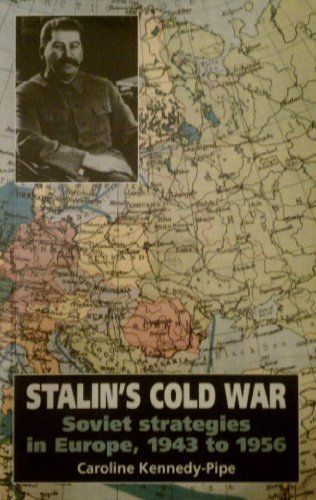
Stalin's Cold War Soviet Strategies in Europe, 1943 to 1956
In the first analysis of the start of the Cold War from a Soviet viewpoint, Caroline Kennedy-Pipe draws on Russian source material to reach some startling conclusions. She challenges the prevailing orthodoxy of Western historians to show how Moscow saw the presence of US troops in Europe in the 1940s and early 1950s as advantageous rather than as a check on Soviet ambitions. The author points to a complex web of concerns than fuelled Moscow's actions, and explores how the Soviet leadership, and Stalin in particular, responded to American policy. She shows how the Soviet experience of the United States and Europe, both before, during and after the Second World War, led Moscow to a policy that was not simply fuelled by anti-Americanism. Six chapters cover events from the wartime conferences of 1943 until the death of Stalin. A final chapter places the book in the context of the current debate over the causes of the Cold War.